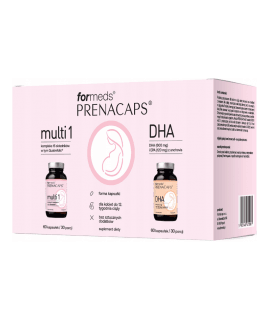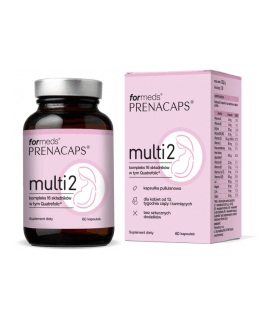Healthy fats - avoid trans fats, get unsaturated fatty acids
Trans fats, contained in hardened vegetable oils and preservatives, disrupt the normal course of biochemical reactions in the female body. This causes disturbances in hormone synthesis and interferes with ovulation. Consumption of as little as 4 grams of these fats per day reduces fertility - the amount contained, for example, in one doughnut or an average portion of French fries.
On the other hand, an increased intake of unsaturated fatty acids promotes conception. They support the reproductive system, the kidneys, and the digestive system. Omega-3 stabilizes the menstrual cycle and hormone levels, in addition, it affects the production of more cervical mucus and better blood supply to the uterus, which facilitates implantation of the embryo. It also eliminates the effects of stress, which is a known enemy of fertility.
Interestingly, studies have shown a positive effect of eating a serving of a full-fat dairy product on a woman's fertility, while eating low-fat dairy increases the risk of infertility. Removing fat from milk alters its hormonal composition, reducing estrogen and progesterone and leaving an excess of male hormones that interfere with ovulation. It is therefore recommended to consume 200 grams of full-fat milk or yogurt daily.
Good carbohydrates - choose whole grain products
Simple carbohydrates contained in sugar, sweets, and light bread cause a rapid rise in blood sugar and insulin, the levels of which then fall just as quickly. This leads to hormonal imbalance, which affects ovulation.
On the other hand, sources of complex carbohydrates are usually also high in fiber and are digested slowly, and insulin levels are more stable after eating them. Eating them not only promotes conception but also protects you from developing gestational diabetes.
Valuable protein - get it from plant foods
Studies have shown that providing protein from plant products helps avoid ovulation problems. A meal with animal protein to a much greater extent raises the level of growth hormone, which in excess interferes with the maturation of egg cells and increases the production of testosterone, which adversely affects female fertility.
Folic acid - eat green leafy vegetables
Folic acid is especially important during pregnancy, as it supports the proper development of the baby's nervous system and prevents its defects. However, it also turns out to be very important for both parents-to-be at the stage of trying for a baby, as it affects the functioning of the haematopoietic system and the growth and division of all cells in the human body.
Deficiencies of this compound in women cause a halt in ovulation or weakening of egg cells. In men, folic acid deficiency deteriorates sperm quality and reduces sperm motility.
To increase the chance of conception, a woman should take in a total of 0.7 mg of folic acid per day from meals and supplementation. This level is difficult to achieve from diet alone, so taking folic acid supplements of about 0.4 mg per day is recommended.
Iron – preferably from fruit and vegetables
Iron supports general well-being and immunity, while also influencing the functioning of the ovum and the embryo in women. Iron deficiency is associated with the risk of weakness, decreased sex drive, and genital dysfunction.
Studies have shown that iron intake from non-heme sources, i.e. plant origin, works best for female fertility. Its absorption can be significantly increased by consuming it together with vitamin C - therefore the best sources are vegetable and fruit salads.









